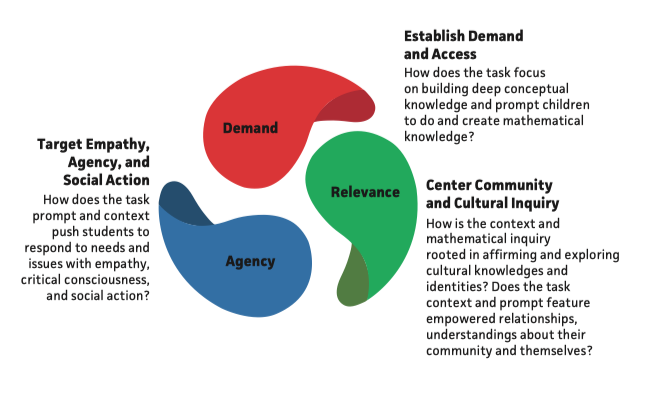
Research Outline
Publication / Conference
Lyublinskaya, I., Okita, S., Walker, E. and Yan, X. (2024) Developing teachers’ cultural competencies through co-design of robot-coding mathematics activities for Latinx and Black elementary school students. London Review of Education, 22 (1), 11. DOI: https://doi.org/10.14324/LRE.22.1.11.
NSF ITEST PI Meeting 2022 Project Website (Poster Session; Nov 1-3, 2022)
NSF 2022 One Pager Research Summary Poster
Research Questions
What are the effects of integrating culturally relevant short robot coding activities into standards-based mathematics curriculum on elementary students’ interest in mathematics? mathematics achievement? interest in future STEM careers?
What features of culturally relevant short robot coding activities are most engaging for students? most productive for mathematics learning experiences of students? most helpful in making connections between the subject of mathematics and student everyday experiences? most helpful for students to develop positive mathematics identities in imagining future STEM careers?
What are the effects of integrating culturally relevant short robot coding activities into standards-based mathematics curriculum on elementary school teachers’ confidence using coding in mathematics instruction?awareness of the value of culturally responsive mathematics pedagogy?
How do teachers incorporate culturally relevant short coding activities into their mathematics instruction, specifically, what instructional strategies with these activities do teachers use? what challenges do teachers face with integrating these activities into standards-based mathematics instruction?
Method Summary
Using a design-based research approach, the project will generate new knowledge about whether, and how, urban Black and Latinx elementary school students can increase mathematics achievement by engaging in short culturally relevant robot coding activities.
This project will also examine potential causal features and mechanisms that underlie 300 elementary school students’ achievement, motivation, and interest in mathematics, and inform 12 teachers of possible learning trajectories when applying robot coding activities for mathematics learning.
The project will also explore a new approach to professional development by involving teachers in co-designing robot coding activities directly linked to experiences and cultures of their students.
